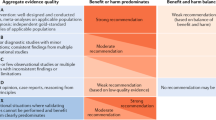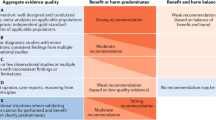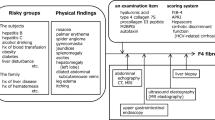Abstract
Background
The duration of remission has been shown to be longer in patients initially treated with exclusive enteral nutrition (EEN) compared to corticosteroids (CS). However, no published studies required concurrent immunomodulator [6-mercaptopurine or azathioprine (AZA)] use at the time of diagnosis.
Aims
The aims of this retrospective study were to compare the duration of remission between patients initially treated with AZA in combination with CS or EEN and identify predictors of early relapse in these patients.
Methods
Data from 65 newly diagnosed children with CD in clinical remission on either EEN or CS and commencing AZA at diagnosis were included. We compared duration of remission using physician global assessment and carried out Cox regression analysis to identify predictors of early relapse. Patients were followed up to the time of first relapse or for at least 12 months.
Results
There were no differences in the duration of remission between patients initially treated with EEN or CS (p = 0.978). We identified younger age at diagnosis [hazard ratio (HR) 0.87, 95 CI 0.78–0.98, p = 0.016], lower height Z score at diagnosis (HR 0.61, 95 CI 0.44–0.85, p = 0.003), involvement of the upper gastrointestinal tract (HR 2.69, 95 CI 1.27–5.66, p = 0.009), and elevated platelet count at remission (HR 1.004, 95 CI 1.001–1.008, p = 0.021) as independent predictors of early relapse.
Conclusions
Neither induction regime demonstrated longer duration of remission of CD in patients treated with immunomodulators since the time of diagnosis.




Similar content being viewed by others
References
Griffiths AM, Ohlsson A, Sherman PM, Sutherland LR. Meta-analysis of enteral nutrition as a primary treatment of active Crohn’s disease. Gastroenterology. 1995;108:1056–1067.
Dziechciarz P, Horvath A, Shamir R, Szajewska H. Meta-analysis: enteral nutrition in active Crohn’s disease in children. Aliment Pharmacol Ther. 2007;26:795–806.
Buchanan E, Gaunt WW, Cardigan T, Garrick V, McGrogan P, Russell RK. The use of exclusive enteral nutrition for induction of remission in children with Crohn’s disease demonstrates that disease phenotype does not influence clinical remission. Aliment Pharmacol Ther. 2009;30:501–507.
Sanderson IR, Udeen S, Davies PS, Savage MO, Walker-Smith JA. Remission induced by an elemental diet in small bowel Crohn’s disease. Arch Dis Child. 1987;62:123–127.
Day AS, Whitten KE, Sidler M, Lemberg DA. Systematic review: nutritional therapy in paediatric Crohn’s disease. Aliment Pharmacol Ther. 2008;27:293–307.
Borrelli O, Cordischi L, Cirulli M, et al. Polymeric diet alone versus corticosteroids in the treatment of active pediatric Crohn’s disease: a randomized controlled open-label trial. Clin Gastroenterol Hepatol.. 2006;4:744–753.
Thomas AG, Taylor F, Miller V. Dietary intake and nutritional treatment in childhood Crohn’s disease. J Pediatr Gastroenterol Nutr. 1993;17:75–81.
Ruuska T, Savilahti E, Maki M, Ormala T, Visakorpi JK. Exclusive whole protein enteral diet versus prednisolone in the treatment of acute Crohn’s disease in children. J Pediatr Gastroenterol Nutr. 1994;19:175–180.
Grover Z, Muir R, Lewindon P. Exclusive enteral nutrition induces early clinical, mucosal and transmural remission in paediatric Crohn’s disease. J Gastroenterol. 2014;49:638–645.
Gerasimidis K, Talwar D, Duncan A, et al. Impact of exclusive enteral nutrition on body composition and circulating micronutrients in plasma and erythrocytes of children with active Crohn’s disease. Inflamm Bowel Dis. 2012;18:1672–1681.
Azcue M, Rashid M, Griffiths A, Pencharz PB. Energy expenditure and body composition in children with Crohn’s disease: effect of enteral nutrition and treatment with prednisolone. Gut. 1997;41:203–208.
Whitten KE, Leach ST, Bohane TD, Woodhead HJ, Day AS. Effect of exclusive enteral nutrition on bone turnover in children with Crohn’s disease. J Gastroenterol. 2010;45:399–405.
Werkstetter KJ, Schatz SB, Alberer M, Filipiak-Pittroff B, Koletzko S. Influence of exclusive enteral nutrition therapy on bone density and geometry in newly diagnosed pediatric Crohn’s disease patients. Ann Nutr Metab. 2013;63:10–16.
Ruemmele FM, Veres G, Kolho KL, et al. Consensus guidelines of ECCO/ESPGHAN on the medical management of pediatric Crohn’s disease. J Crohns Colitis.. 2014;8:1179–1207.
Cameron FL, Gerasimidis K, Papangelou A, et al. Clinical progress in the two years following a course of exclusive enteral nutrition in 109 paediatric patients with Crohn’s disease. Aliment Pharmacol Ther. 2013;37:622–629.
Knight C, El-Matary W, Spray C, Sandhu BK. Long-term outcome of nutritional therapy in paediatric Crohn’s disease. Clin Nutr. 2005;24:775–779.
Berni Canani R, Terrin G, Borrelli O, et al. Short- and long-term therapeutic efficacy of nutritional therapy and corticosteroids in paediatric Crohn’s disease. Dig Liver Dis. 2006;38:381–387.
Levine A, Turner D, Pfeffer Gik T, et al. Comparison of outcomes parameters for induction of remission in new onset pediatric Crohn’s disease: evaluation of the porto IBD group “growth relapse and outcomes with therapy” (GROWTH CD) study. Inflamm Bowel Dis. 2014;20:278–285.
Lambert B, Lemberg DA, Leach ST, Day AS. Longer-term outcomes of nutritional management of Crohn’s disease in children. Dig Dis Sci. 2012;57:2171–2177.
Beaugerie L, Seksik P, Nion-Larmurier I, Gendre JP, Cosnes J. Predictors of Crohn’s disease. Gastroenterology. 2006;130:650–656.
Cosnes J, Bourrier A, Nion-Larmurier I, Sokol H, Beaugerie L, Seksik P. Factors affecting outcomes in Crohn’s disease over 15 years. Gut. 2012;61:1140–1145.
Pigneur B, Seksik P, Viola S, et al. Natural history of Crohn’s disease: comparison between childhood- and adult-onset disease. Inflamm Bowel Dis. 2010;16:953–961.
Inflammatory bowel disease in children and adolescents. recommendations for diagnosis–the Porto criteria. J Pediatr Gastroenterol Nutr. 2005;41:1–7.
Levine A, Koletzko S, Turner D, et al. The ESPGHAN Revised Porto Criteria for the Diagnosis of Inflammatory Bowel Disease in Children and Adolescents. J Pediatr Gastroenterol Nutr.
Hill RJ, Lewindon PJ, Withers GD, et al. Ability of commonly used prediction equations to predict resting energy expenditure in children with inflammatory bowel disease. Inflamm Bowel Dis. 2011;17:1587–1593.
Critch J, Day AS, Otley A, King-Moore C, Teitelbaum JE, Shashidhar H. Use of enteral nutrition for the control of intestinal inflammation in pediatric Crohn disease. J Pediatr Gastroenterol Nutr. 2012;54:298–305.
Kobzova J, Vignerova J, Blaha P, Krejcovsky L, Riedlova J. The 6th nationwide anthropological survey of children and adolescents in the Czech Republic in 2001. Cent Eur J Public Health. 2004;12:126–130.
Therneau TM, Grambsch PM. Modeling survival data: Extending the {C}ox model. New York: Springer; 2000.
Wickham H. Ggplot2: Elegant graphics for data analysis. New York: Springer; 2009.
Silverberg MS, Satsangi J, Ahmad T, et al. Toward an integrated clinical, molecular and serological classification of inflammatory bowel disease: Report of a Working Party of the 2005 Montreal World Congress of Gastroenterology. Can J Gastroenterol.. 2005;19:5–36.
Heuschkel RB, Menache CC, Megerian JT, Baird AE. Enteral nutrition and corticosteroids in the treatment of acute Crohn’s disease in children. J Pediatr Gastroenterol Nutr. 2000;31:8–15.
Jaspers GJ, Verkade HJ, Escher JC, de Ridder L, Taminiau JA, Rings EH. Azathioprine maintains first remission in newly diagnosed pediatric Crohn’s disease. Inflamm Bowel Dis. 2006;12:831–836.
Punati J, Markowitz J, Lerer T, et al. Effect of early immunomodulator use in moderate to severe pediatric Crohn disease. Inflamm Bowel Dis. 2008;14:949–954.
Riello L, Talbotec C, Garnier-Lengline H, et al. Tolerance and efficacy of azathioprine in pediatric Crohn’s disease. Inflamm Bowel Dis. 2011;17:2138–2143.
Grover Z, Lewindon P. Two-year outcomes after exclusive enteral nutrition induction are superior to corticosteroids in pediatric Crohn’s disease treated early with thiopurines. Dig Dis Sci. 2015;60:3069–3074.
Markowitz J, Grancher K, Kohn N, Lesser M, Daum F. A multicenter trial of 6-mercaptopurine and prednisone in children with newly diagnosed Crohn’s disease. Gastroenterology. 2000;119:895–902.
Beaugerie L, Sokol H. Clinical, serological and genetic predictors of inflammatory bowel disease course. World J Gastroenterol. 2012;18:3806–3813.
Vester-Andersen MK, Vind I, Prosberg MV, et al. Hospitalisation, surgical and medical recurrence rates in inflammatory bowel disease 2003–2011-a Danish population-based cohort study. J Crohns Colitis. 2014;8:1675–1683.
Frivolt K, Schwerd T, Werkstetter KJ, et al. Repeated exclusive enteral nutrition in the treatment of paediatric Crohn’s disease: predictors of efficacy and outcome. Aliment Pharmacol Ther. 2014;39:1398–1407.
Wine E, Reif SS, Leshinsky-Silver E, et al. Pediatric Crohn’s disease and growth retardation: the role of genotype, phenotype, and disease severity. Pediatrics. 2004;114:1281–1286.
Grover Z, Biron R, Carman N, Lewindon P. Predictors of response to Infliximab in children with luminal Crohn’s disease. J Crohns Colitis. 2014;8:739–746.
Lee D, Baldassano RN, Otley AR, et al. Comparative effectiveness of nutritional and biological therapy in North American Children with Active Crohn’s Disease. Inflamm Bowel Dis. 2015;21:1786–1793.
Zachos M, Tondeur M, Griffiths AM. Enteral nutritional therapy for induction of remission in Crohn’s disease. Cochrane Database Syst Rev. 2007;24:CD000542.
Acknowledgments
The project was supported by the Ministry of Health, Czech Republic, for conceptual development of research organizations 00064203 (University Hospital Motol, Prague, Czech Republic) and project GA UK No. 136215 by the Charles University in Prague.
Author information
Authors and Affiliations
Corresponding author
Ethics declarations
Conflict of interest
None.
Rights and permissions
About this article
Cite this article
Hradsky, O., Copova, I., Zarubova, K. et al. Time to Relapse in Children with Crohn’s Disease Treated with Azathioprine and Nutritional Therapy or Corticosteroids. Dig Dis Sci 61, 2041–2050 (2016). https://doi.org/10.1007/s10620-016-4103-8
Received:
Accepted:
Published:
Issue Date:
DOI: https://doi.org/10.1007/s10620-016-4103-8




